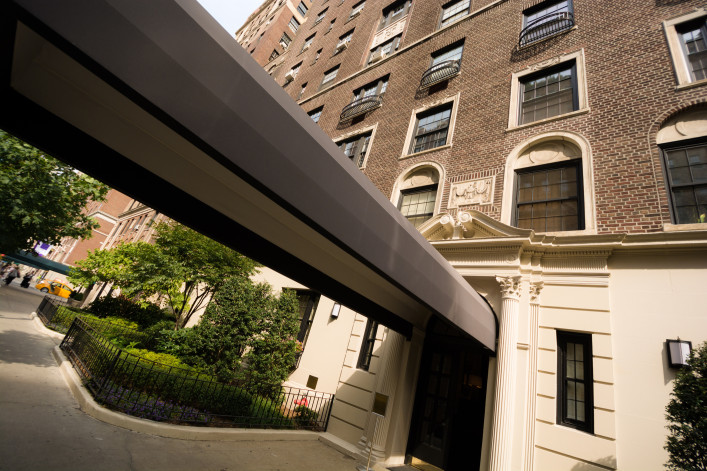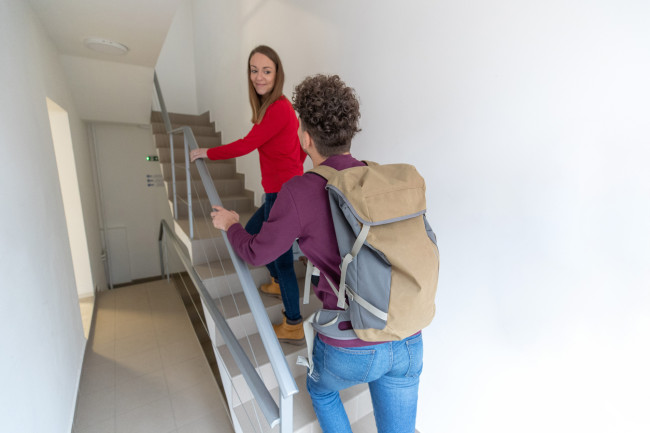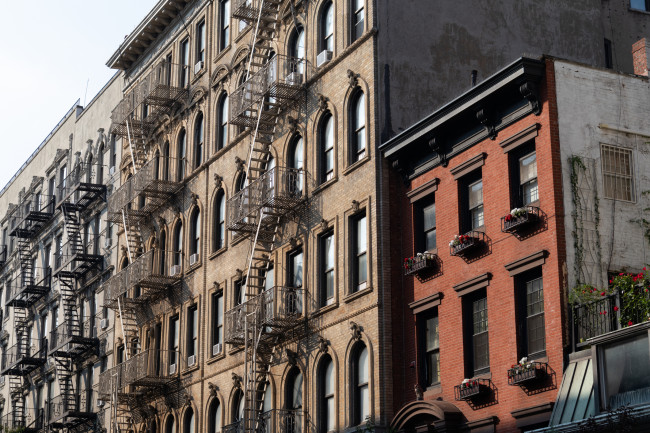How NYC co-op and condo boards can crack down on illegal short-term rentals
- Short-term rental hosts are required to register with the city and display a registration number in their listings
- Some hosts may try to skirt the rules by listing their units on platforms not covered by Local Law 18
- Boards can spot check listing sites, ask staff to keep tabs on guests, and make guests sign in

It’s illegal for an owner or tenant to rent out their entire apartment for less than 30 days in NYC.
iStock
New York City’s crackdown on illegal short-term rentals has made it more difficult for apartment owners and renters to skirt the law and rent out their units. But illegal short-term rental schemes haven’t disappeared completely.
Just two months ago, the city levied $845,000 in fines against a real estate firm for an alleged illegal Airbnb operation. And many NYC’s condo and co-op boards have adopted their own fines and policies to limit illicit rentals.
Boards have instructed building staff to keep tabs on guests, required residents to notify building management of visitors, or have even submitted their building to a city list of buildings where all short-term rentals are banned.
That list is a part of Local Law 18, a rule passed in 2022 that requires short-term rental hosts to register with the Mayor’s Office of Special Enforcement (OSE) and confirm that they have a right to rent out the space. (As a reminder, it’s illegal for an owner or tenant to rent out their entire apartment for less than 30 days in NYC). Those that break the law can face fines of as much as $5,000.
The number of Airbnb listings has plunged by 15,000 available apartments as a result of Local Law 18, the Wall Street Journal reported. And it’s been popular among co-op and condo boards eager to limit illegal rentals in their buildings, said Steven Goldschmidt, a board member of his 100-plus unit co-op building in Morningside Heights and a broker at Coldwell Banker Warburg.
“In most established buildings and co-ops, [short-term rentals] have become the rare exception rather than the norm,” Goldschmidt said. “I'm sure there's still people in New York to try it and try to avoid it.”
But those still trying to bypass the law present a tricky issue for condo and co-op boards, because buildings can face serious consequences when too many units are not occupied by owners. Read on for five ways your board can prevent illegal short-term rentals from cropping up in your building.
Do your own spot checks
Your first step is an easy one: check online. You can search platforms like Airbnb, Vrbo, Booking.com, and others to see if a unit in your building is listed.
“Some boards or management companies would just search the address [online] every so often to see if an apartment came up for rent,” said Michael Wolfe, president of Wolfe Realty Services and a board member of Council of NYC Cooperatives and Condominiums.
Your board should also check sites that don’t only list short-term rentals, such as Craigslist and Facebook Marketplace. These websites are excluded from Local Law 18’s requirements to verify that a host has registered with the OSE because the two platforms don’t charge fees for their rental listings. (Those trying to duck Local Law 18 may be more inclined to use sites that are not as obviously regulated).
Get on the prohibited building list
If your building wants to ban any and all short-term rentals, you should apply to put your building on the OSE’s prohibited buildings list.
The OSE has approved 12,826 applications to be placed on the list as of Monday, May 27th, according to an office spokesperson. The list lets the agency know that any short-term rental in your building is not allowed, though it only encompasses properties where short-term rentals are prohibited in all units. (You can find out if your building is already on the prohibited building's list by searching your address and you can apply to be placed on the list online).
Give building staff a head’s up
Building workers can be very helpful at keeping eyes out for suspicious behavior—think guests arriving at odd hours, folks showing up with suitcases unexpectedly, or those who don’t seem to know who they’re staying with.
Goldschmidt said his building’s doormen will report suspicious guests. From there, the board can look to see if an apartment owner is a repeat offender and worth having a chat with.
“If the door staff senses that the guest is really staying at an Airbnb—usually if they don’t know the name of the apartment owner, a dead giveaway, they will report it,” Goldschmidt said.
Notify residents of the rules and potential fines
A big part of preventing bad behavior is making sure unit owners understand the rules, Wolfe said. So make sure you've outlined the risks of breaking the city’s short-term rental laws to your residents.
“The board should clearly be disseminating the information—they should’ve done that already,” Wolfe said.
Residents that are aware of the law also might be more willing to give the board a heads up if they notice someone breaking the rules.
“Neighbors tend to be the biggest whistleblowers,” said Dawn David, an associate broker at Corcoran who previously managed properties in Manhattan and Brooklyn for 18 years.
Some boards have even imposed their own fines on illegal sublets. David has seen fines ranging from $500 to $5,000, though Wolfe noted they tend to vary widely by building.
Require that residents register guests
Buildings can also require that residents notify their super, property manager, or even the board when a guest will be staying in their apartment if the resident is leaving town. That can help boards keep tabs on patterns of suspicious behavior, Goldschmidt said.
His building uses the property management software BuildingLink to keep tabs on guests.
“Residents are required to register any time that they are away and plan to have ‘guests’ staying in their apartment,” Goldschmidt said. “When the guest arrives, if there is no notation in BuildingLink the guests will not be given access by the door staff.”































